I was recently rereading an old favorite book.
If I had to name my 10 favorite authors, Dan Jenkins would be on the list and he wouldn’t be 10th either. He wrote both fiction and non-fiction, and I thought he wrote the. funniest one-sentence sum-up I ever read ove the sport the rest of the world calls football.
“A guy scores a goal, runs around the stadium shaking his fists, suddenly sinks to his knees, and everybody on the team fucks him dog-style.”
Nearly all his books were about sports — golf and/or football — but he wrote one book about the heyday of journalism in the 1930s.
“Fast Copy” is the story of Betsy Throckmorton, who returns to north central Texas from New York City to take over the newspaper her father owns in the medium-sized city of Claybelle.
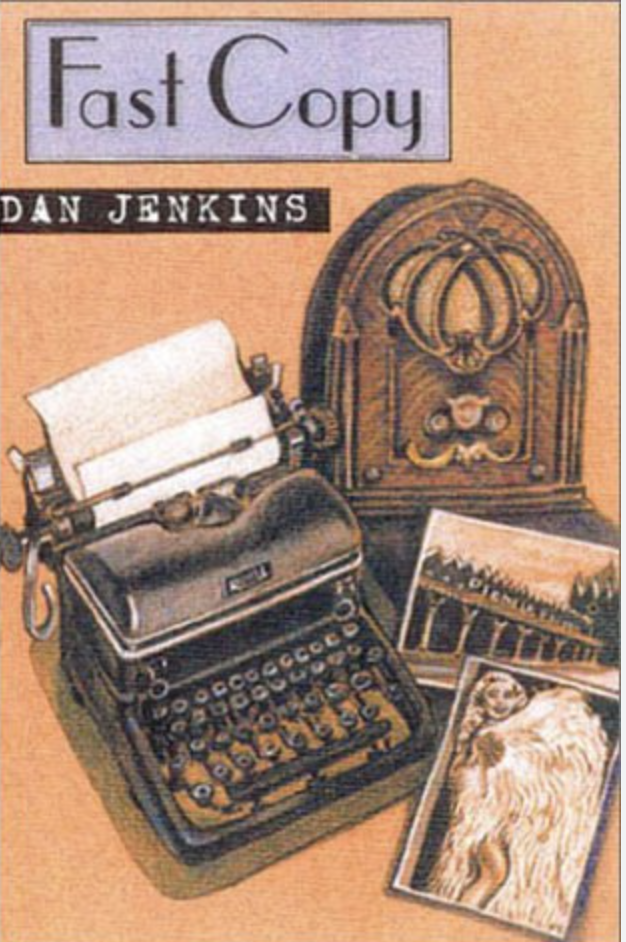
As Betsy’s train pulls into Fort Worth, she thinks about difficulties that may arise.
“Betsy was aware that living in Texas again wasn’t going to be easy, not as easy as the people around Claybelle would think. They thought of it as God’s country, of course. They people who never left small towns, in Texas or anywhere else, always called it God’s country, as if they knew for a fact that God took a dim view of bright lights, dark saloons, jazz, theater, swanky restaurants, tabloids, foreigners, and interesting conversations with interesting people. God, they were certain, was partial to the big sky, the solitude of the last — all that tumbleweed shit.”
I lived in Claybelle once. Oh, not exactly. Claybelle is fictitious, but I lived in a city of about 50,000 that was an hour or so from a major city and had its own newspaper. It was near enough to the major city to enjoy its pleasures yet far enough away to have an identity of its own.
Not quite God’s country, but you could see it from there.
It was a couple of steps up from my mother’s hometown in north central Ohio, which didn’t have a fast-food outlet until the 1970s and pretty much never had a daily newspaper. It was a tenth the size of Claybelle, and most of what it had going for it economically was that it used to be a railroad hub.
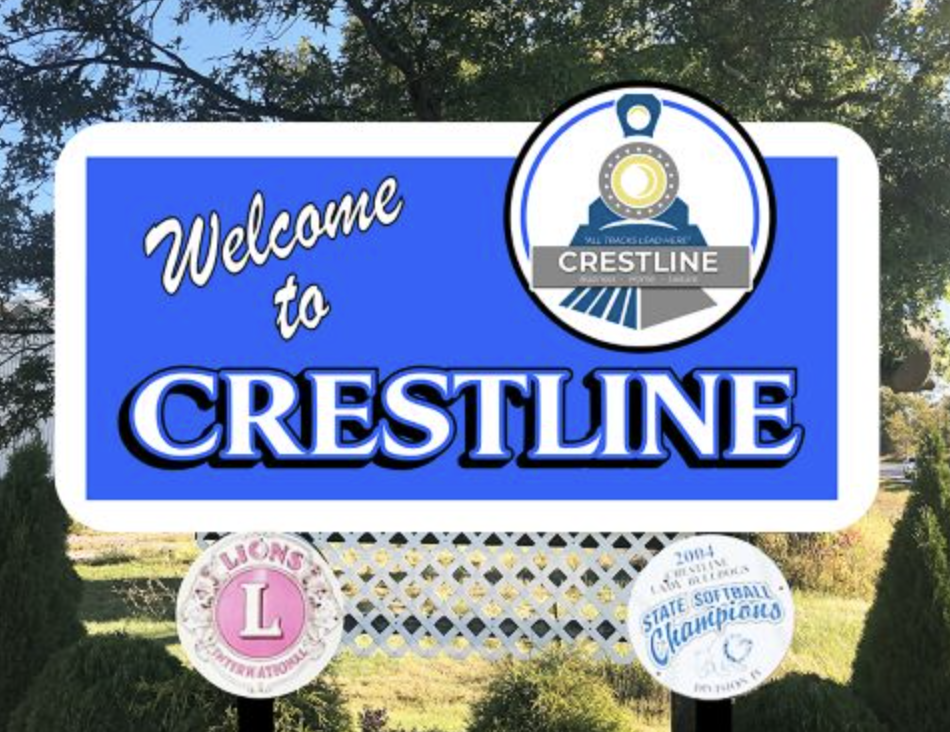
It was a wonderful place to be a child, at least up to about age 12 or so, and I have a feeling if I were alone in the world now, I might appreciate the quiet. I am the age now that my grandparents were when I was 17, and there are times I feel less alive than they must have felt.
I was 10 or 11 when the movie theater closed, and for most of the ’60s I don’t think there was a restaurant in town. For part of that time, the only grocery store was an A&P, which was really just a glorified convenience store..
No, I could never have lived there as an adult in my working years. I suppose I could have commuted to Mansfield, a city of a little less than 50,000 that is probably best known for a state prison. At least it has a daily newspaper.
As for the prison, it’s where they filmed a great movie, “”The Shawshank Redemption.”
I never lived there, although I lived in southwestern Ohio from about age 3 to 13. Much of that was in a step-up-from-Levittown type community just north of Dayton. Huber Heights billed itself as the world’s largest community of all-brick homes. I attended school there from second grade through the first half of eighth grade before we moved to Virginia.
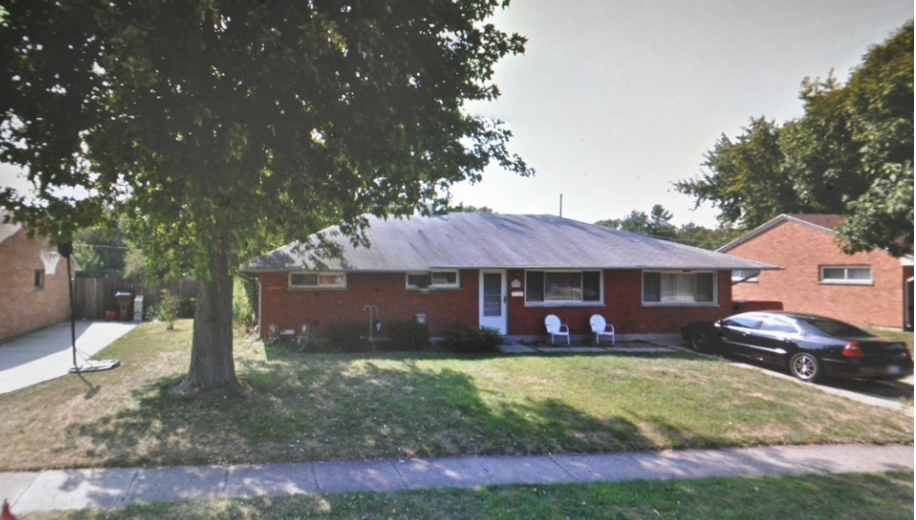
The picture above is our first home in Huber Heights. It was on Harshmanville Road in the original portion of the community they now call Hubertucky, an insult you have to be from Ohio to understand. One wonderful thing about it was that the school I attended in fifth and sixth grade was one block up the street.
I actually went home for lunch for two years.
It wasn’t a small town, More than anything, it was a bedroom community for people who worked in Dayton or at Wright-Patterson Air Foce Base east of Dayton.
I actually never lived in a small town as an adult with the exception of nine months in 1983-84 in Anderson, S.C. It was a relatively small town — about 28,000 people — but it was just a whistle stop along the road to my career.
My goals were always big cities, although strictly from a career point of view, I think it was a mistake the way things have worked out for newspapers.
I spent the last 18 years of my career in the Los Angeles area, and my career ended in early 2008 when about a thousand newspaper jobs vanished almost overnight. The paper I had worked. for that whole time has all but vanished as an entity.
So of course I have thought of Greeley, Colorado.
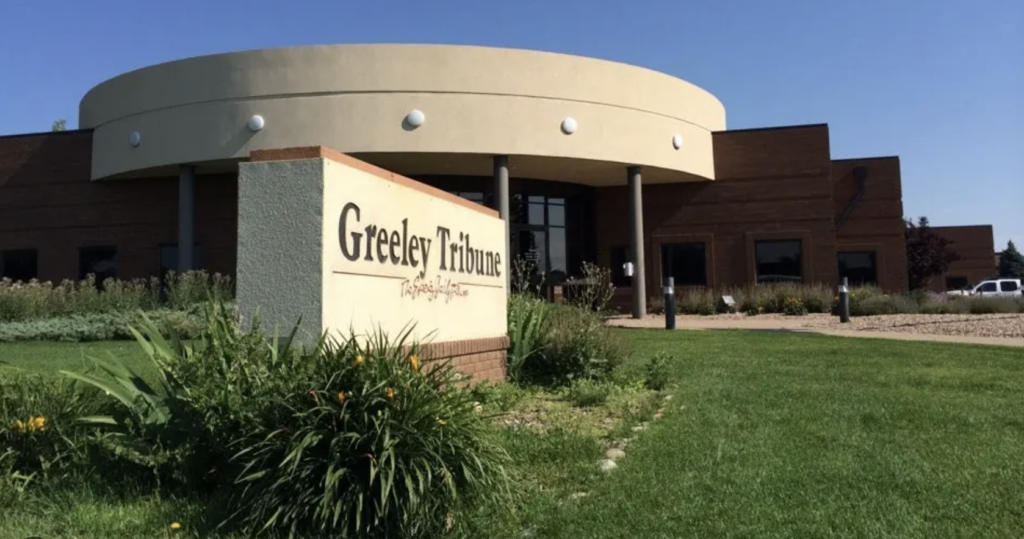
Greeley was actually the most wonderful fluke of my life. I was nearing the end of 2 1/2 years in St. Louis and visiting a former girlfriend for a week in Denver. While there, I learned that the Greeley Tribune was looking for a sports editor. I called and asked if I could come up for an interview. I was told they were fairly late in the process, but they agreed to see me.
I got the job and spent two wonderful years living and working in Greeley.
In some respects, I wish I had stayed. I loved the job, the town, the climate and Colorado. But I had something else going on. I had made up my mind in 1980 that I would work my way across the country and would not be satisfied until I made it to California. I was happier in Greeley than I had been anywhere else, but I never considered it as a destination.
I was really becoming part of the community. I wrote a sports column five days a week, and I had designed a column logo that was being used throughout the paper.
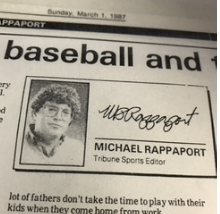
I remember buying some shirts at Joslin’s department store at the mall and signing my name to the receipt. The salesgirl lokked at it and smiled. “Most famous signature in town.”
It’s impossible to say I wish I had stayed. Staying in Colorado would have meant never meeting Nicole, never being a dad to Pauline and Virgile, never having my six wonderful grandchildren.
But I truly loved my life in Greeley. It wouldn’t qualify as a small town — population 50,000 when I moved there in 1986 and 100,000 now. Still, it was on the edge of the Rocky Mountains, out in God’s country.
My small city.
